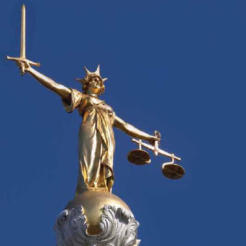A report for the Legal Services Consumer Panel has found that small charities have little understanding of the legal issues they face, and warns that funding cuts and greater pressure on their services could see charities facing a wider variety of legal implications.
Commissioned in July and published this week, the study into the provision of legal services to small charities conducted both quantitative and qualitative research to ascertain what knowledge gaps exist and to drive reform in legal services for charities.
Half of the representatives from 24 small charities partaking in the detailed research demonstrated limited or no understanding of the laws that apply to them, despite being the person most responsible for legal matters. A wider survey, completed by 800 small charities, found that they felt overwhelmed by guidance, highlighting a need for greater collaboration in legal service provision.
The report finds that small charities rely on legal advice from a wide range of sources including the Charity Commission, local infrastructure organisations such as CVS or Voluntary Action, umbrella bodies or larger affiliated charities and solicitors.
Role of the Charity Commission
While the report places emphasis on the important role of the Charity Commission in providing legal advice, just 16 per cent of those surveyed said they would consider the Commission as a first or second port of call for legal advice. The Commission’s strategic review could threaten even this output, the study advised, if it were to reduce or stop one-to-one advice altogether.
Partnerships with umbrella bodies, which already perform an important role for many small charities that lack resources to employ their own support functions, could fill the gap, the study suggests, although currently only 13 per cent of charities surveyed said they would go to an umbrella body first or second for advice.
Cross-sector collaboration is needed to provide better for small charities according to Cath Lee, chief executive of the Small Charities Coalition: “We welcome this research as it confirms much of the anecdotal feedback we have from our members. The greatest value is in having this solid evidence and some clear themes that, if addressed by the legal and voluntary sectors working together, could improve access to legal advice for the very many small charities.”
Elisabeth Davies, chair of the Legal Services Consumer Panel, added: “Small charities tell us they are drowning in information and struggle to know what their legal responsibilities are. Although there are some useful guides, information needs to be better co-ordinated and signposted.”
Funding changes have legal implications
The majority of charities surveyed had active legal arrangements for investments (61 per cent) and fundraising (59 per cent), or working with children and young people or vulnerable adults (57 per cent). Half had legal obligations for staff and property. But the changing structure of government funding from grants to payment-by-results trading structures brings with it new legal challenges, the report advises.
Combined with diversification of funding streams necessary to combat decreasing donations and funding cuts, the new funding structure could increase charities’ need to seek legal advice in relation to the structure of their organisation, health and safety implications, responsibility for employees and their right to operate as a charity.
The Legal Services Consumer Panel is to use the report to encourage the government to recognise the implications of funding cuts on providing legal advice to small charities, including the likelihood that the Charity Commission will have to reduce its advice-giving services and the ability of local specialist charities to get involved in delivering services if they do not have access to free or cheap legal advice.
Charities taking part in the research offered their own suggestions as to how to improve legal information. These included a dedicated helpline available to all charities for advice on legal issues, a directory of solicitors at local level which offer charities free or cheap advice, and the production of a simple guide to legal obligations and liabilities and knock on effects of certain actions produced at high level.
Subscribers to civilsociety.co.uk can access all the latest advice on recent legal issues here. If you are not a subscriber but would like to be, click here.









